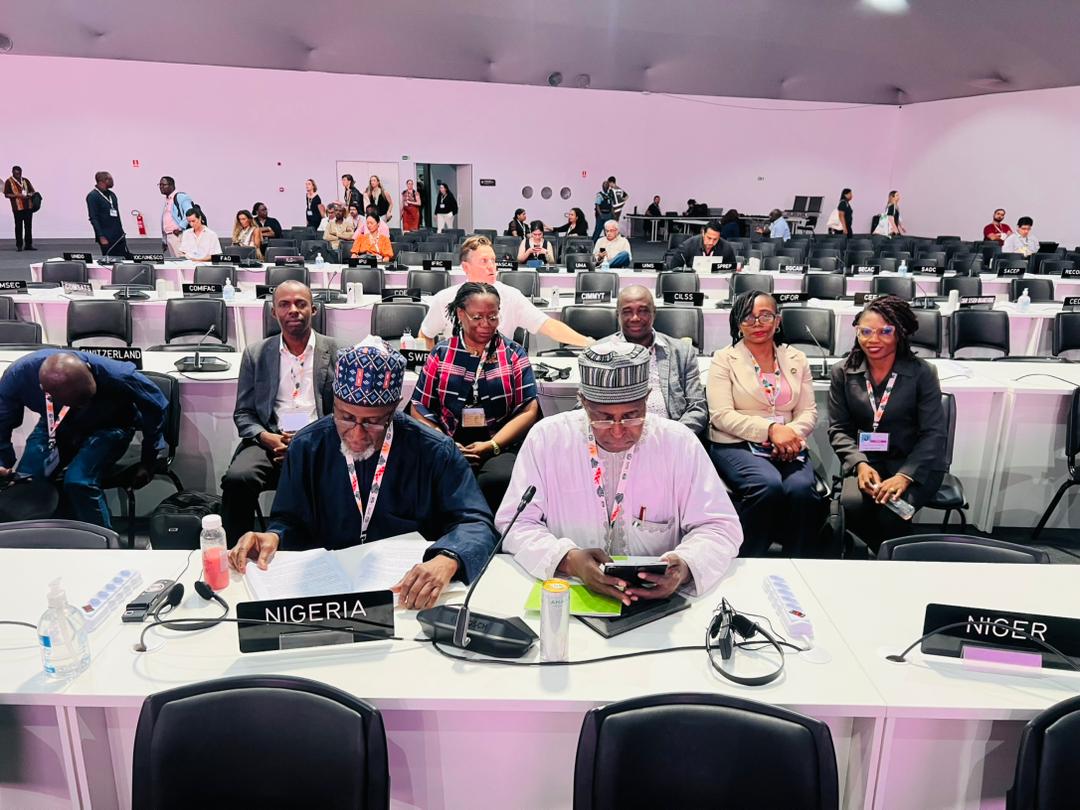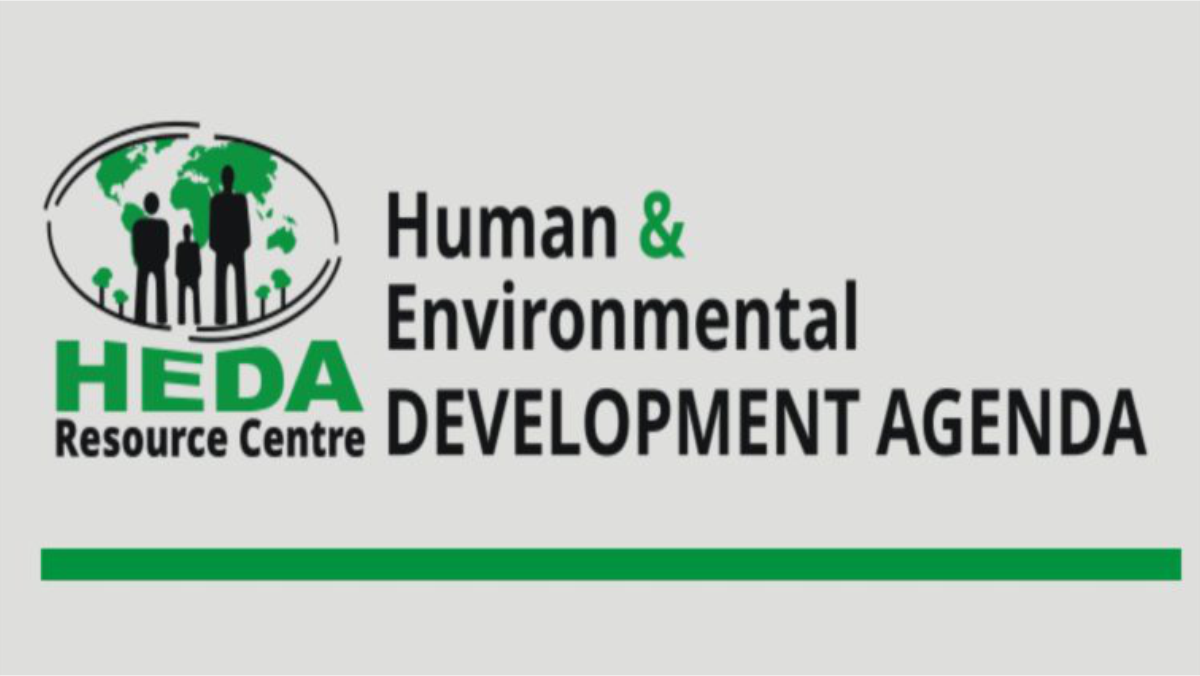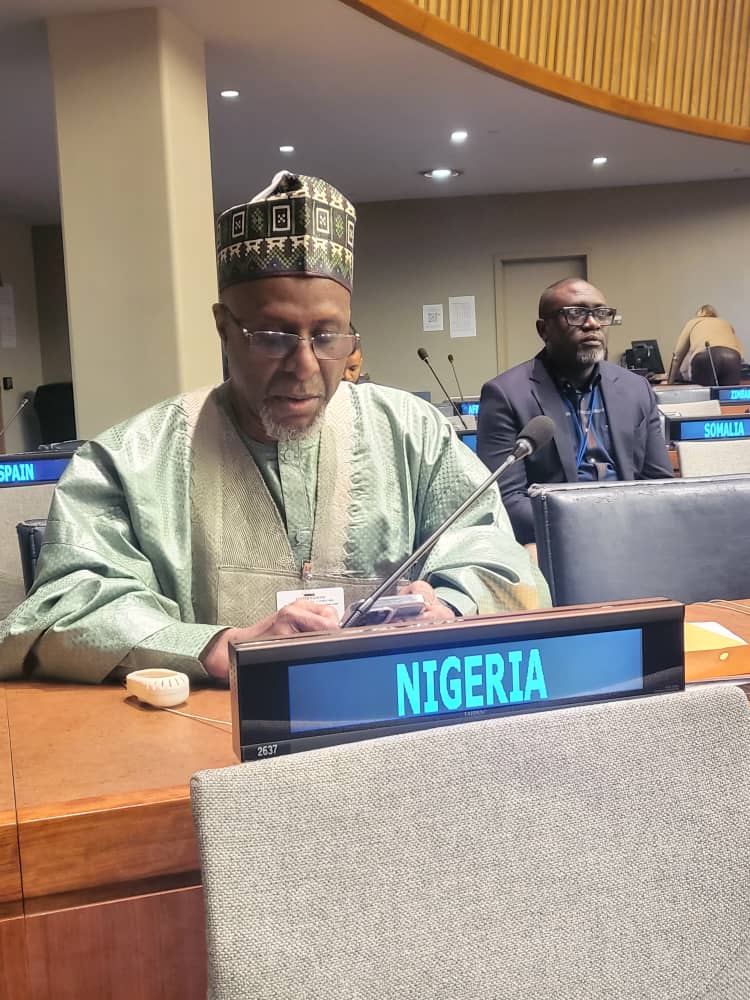COP30: Tinubu Urges Global Leaders to Honour $100-billion Climate Finance Commitments in Belém

By Fatima Saka
President Bola Ahmed Tinubu has called on world leaders to urgently fulfil their climate finance pledges of $100-billion, as Nigeria outlined significant progress in its transition toward a resilient, low-carbon future at the United Nations Climate Change Conference (COP30) in Belém, Brazil.
The President’s national statement, delivered on his behalf on Wednesday by the Minister of Environment, Balarabe Abbas Lawal, emphasized that Nigeria remains one of the countries most vulnerable to climate change and is therefore taking bold, practical measures to mitigate its impacts.
Tinubu noted that climate threats are visible across Nigeria, from desertification and loss of arable land in the northern region to erosion and land degradation along the coastal belt. To confront these challenges, he said, Nigeria has moved “from pledges to implementation,” prioritizing climate resilience across all sectors.
A major highlight of the statement was Nigeria’s submission of its enhanced Third Nationally Determined Contribution (NDC 3.0), the first of its kind in West Africa, which aligns climate goals with national development, energy access, adaptation, and emissions reduction.
To finance this transition, Tinubu announced the issuance of Nigeria’s third Sovereign Green Bond, dedicated to advancing green projects nationwide.
The President also underscored ongoing partnerships through initiatives such as ACReSAL, the Great Green Wall, and NEWMAP, which are restoring degraded lands, protecting watersheds, and improving rural livelihoods.
The statement highlighted Tinubu’s push for green innovation through the Green Economic Empowerment (GEE 774) initiative, which promotes e-mobility. Under the scheme, Nigeria has assembled and distributed electric tricycles through a lease-to-own model, creating jobs and empowering women and young people.
On disaster preparedness, Tinubu said Nigeria is strengthening protection for vulnerable communities through the National Flood Management and Resilience Programme (NFM-RP), with investments in hydraulic structures, shore protection, river training, and catchment restoration.
Regionally, the President reaffirmed Nigeria’s commitment to climate resilience in the Sahel through collaboration with the Niger Basin Authority and the Lake Chad Basin Commission. The country is prioritizing groundwater management, early warning systems, and nature-based solutions to curb flooding, drought, and resource-related tensions.
Tinubu also disclosed that Nigeria has operationalized its National Carbon Market Framework, positioning the country as a hub for credible carbon markets. Additional initiatives, such as the Nigeria Farmers Soil Health Scheme, Smart Mining Technologies, and the Nigeria Livestock Growth Acceleration Strategy (NL-GAS), are driving sustainable land use and methane reduction across key sectors.
On inclusive climate governance, Nigeria is advancing sustainable cooling through the Nigeria Cooling Action Plan (N-CAP) in line with the Montreal Protocol and the Kigali Amendment.
In a strong message to industrialized nations, President Tinubu urged countries that made the $100-billion annual climate finance pledge to honour their commitments.
Cabul Network Boosts Learning in FCT, Distributes Uniforms and Books to Pupils Amid Rising Hardship
He stressed that developing nations require timely resources for adaptation, mitigation, and technological advancement. “Addressing climate change is a shared responsibility,” Tinubu affirmed, calling COP30 a crucial platform for nations to strengthen global solidarity and convert commitments into meaningful action.
“Nigeria stands ready to collaborate, innovate, and support a just and sustainable transition for the benefit of present and future generations,” he added.





